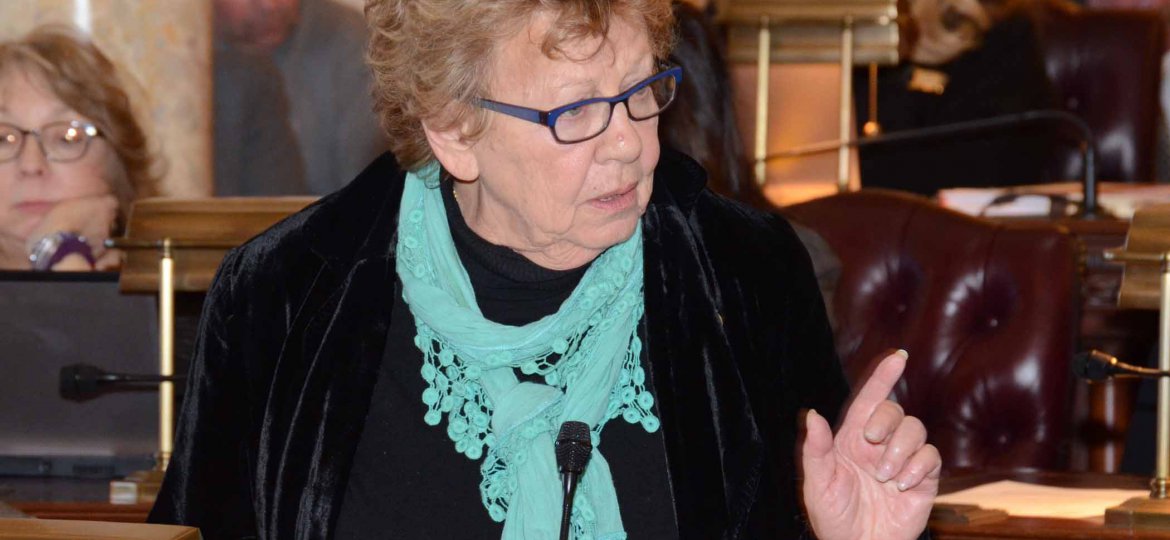
Requires Discussion on Addiction Potential of Medications Prescribed to Minors
TRENTON – Legislation sponsored by Senate Majority Leader Loretta Weinberg and Senate Health Chairman Joseph Vitale to help combat the opioid epidemic by requiring doctors and other prescribers to discuss the addiction potential of certain medication prior to issuing a prescription to a minor patient was approved by the Senate today.
“Heroin often begins with dependence on prescription pills, so it is critical that we focus our efforts at the source,” said Senator Weinberg (D-Bergen). “Requiring doctors to discuss the addictive qualities of these medications with parents before prescribing them to young people is one way we can help to stem the problem of addiction that has already taken too many lives in our state. Discussing alternative treatments to these medications when appropriate is also important to combating the opioid epidemic.”
“Abuse of prescription drugs by young people is a major concern and, unfortunately, is too often the precursor to heroin addiction. We have to take action on a number of levels to address this problem and ensuring parents and patients are aware of the dangers of certain prescription drugs is one of the proactive ways we can do that,” said Senator Vitale (D-Middlesex).
This bill (S2156) requires health care professionals with prescribing authority to discuss the addiction potential of certain prescription medications prior to issuing a prescription for the medication to a patient who is under 18 years of age. The prescriber is to have this discussion with the patient, if the patient is an emancipated minor, and with the patient’s parent or guardian if the patient is not emancipated.
The discussion will be required prior to issuing a prescription for any medication which is a prescription opioid. The prescriber will specifically be required to discuss the risks of developing a physical or psychological dependence on the medication and, if the prescriber deems it appropriate, any alternative treatments that may be available.
The Governor’s Council on Alcoholism and Drug Abuse issued a report on opioid use and abuse among adolescents and young adults. They reported that in 2012 there were more than 8,300 admissions to State-licensed or certified substance abuse treatment programs due to prescription drug abuse and out of these admissions, half involved persons 25 years old or younger. The report also noted that the number of teenagers who abuse prescription drugs, with pain relievers being the primary drug, is greater than those who use cocaine, hallucinogens, and heroin combined.
The bill was approved by a vote of 35-1. It next heads to the Assembly for consideration.

